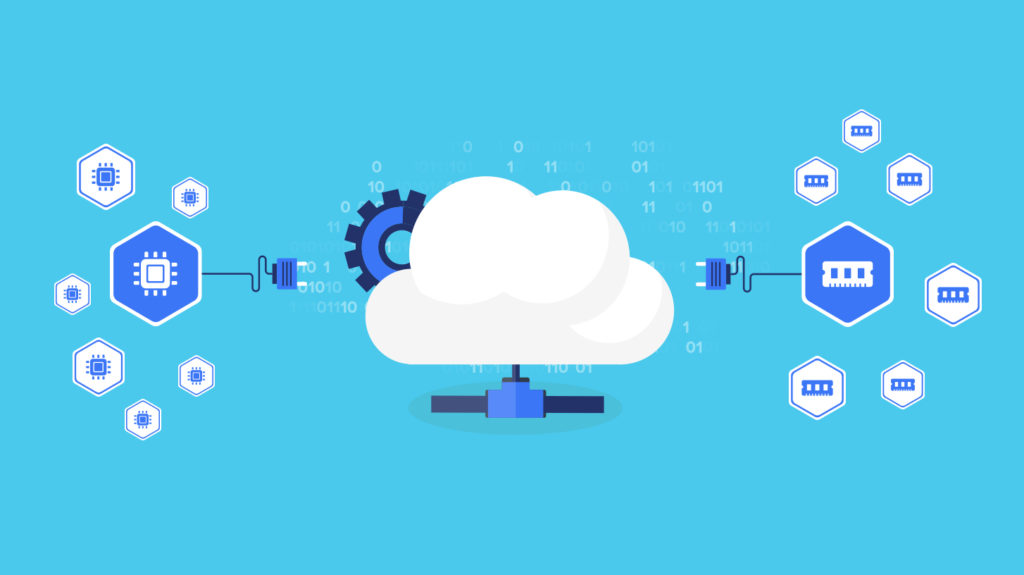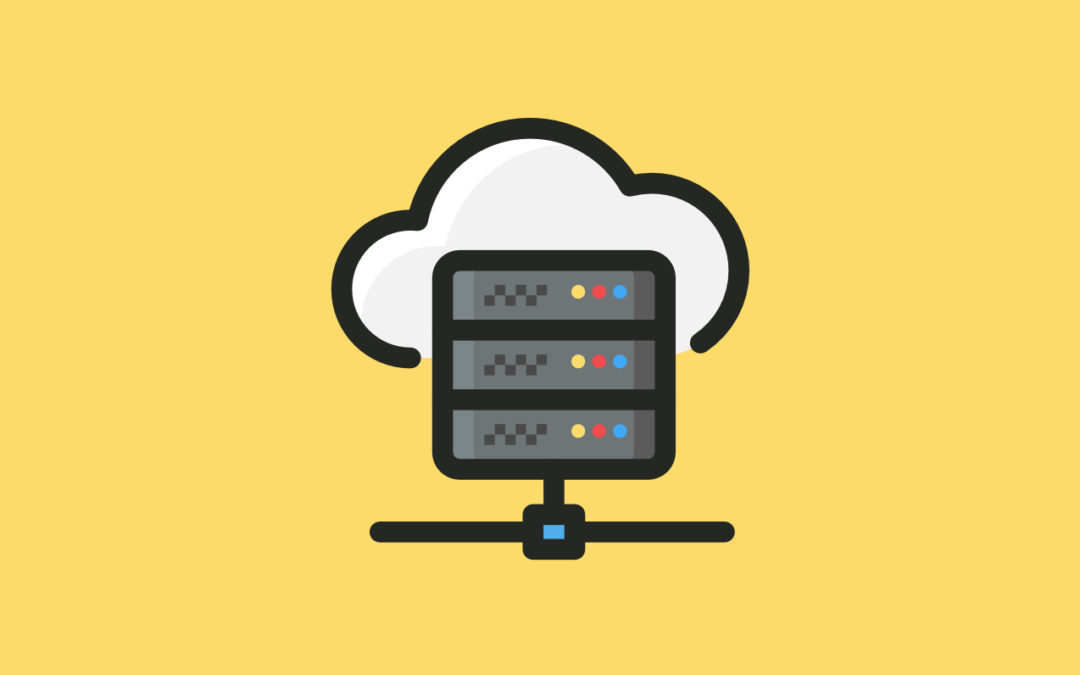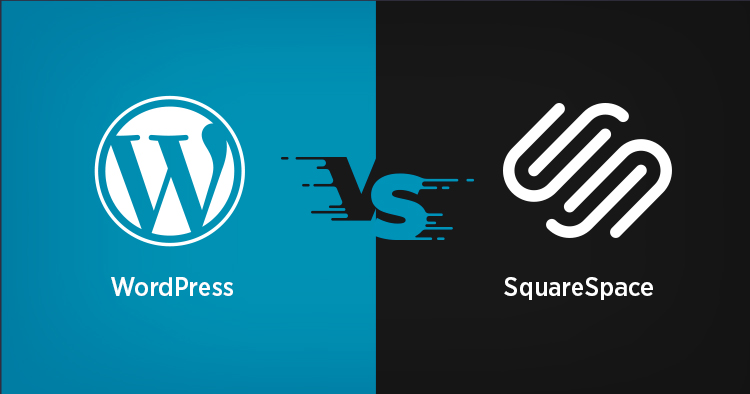What Is Server Management and Why Is It So Important for Business?
Every business requires technical tools and technologies to grow and succeed in today’s world. Your servers are the heart of your IT infrastructure, and they must be adequately managed and maintained to ensure their efficient performance. However, as a company expands, so do its technological needs.
It’s common for small businesses to begin with just one server. However, when the company grows and adds more customers, the load on that server increases, and the need for another emerges. That’s where server management plays an important role.
Businesses that want to retain an online presence and provide a pleasant user experience need to have a well-managed server. In this article, we’ll be discussing what server management is, its benefits, and how it works.

What Is Server Management?
Server management is the practice of keeping an eye on servers and making adjustments to ensure that they are operating at their peak capacity. Its primary goal is to minimize server downtime and slowdowns, build secure environments, and guarantee that servers match the needs of a company as it expands.
Common Types of Servers
Servers are massive data storage and processing equipment that can be acquired physically or as cloud storage facilities accessible via the internet. You may come across servers in many shapes and sizes, each serving a distinct purpose, but there are a few basic types with which you will most often work. Making sure each server is running smoothly begins with knowing what it does.
- File Transfer Protocol (FTP) servers: Transmitting data among servers and devices is handled by these servers.
- Application servers: Link and execute applications utilized by a significant number of people and eliminate the need to host them on a local server.
- Web servers: They serve up web pages to users’ web browsers and store the files that make up those pages.
- Database Servers: Organizations rely on these servers to store vast volumes of data and make it accessible.
- Cloud server: Multiple servers can be housed on one hardware, thanks to these technologies. They’re more challenging to manage, but they boost productivity by enabling administrators to add more processing power while using less hardware. Fortunately, HJI Technologies offer reliable cloud server management services to make things easier for businesses.
- Proxy servers: Their task is to establish and maintain the link between the client and the remote server.
Components of Server Management
Effective server management involves the implementation of the following IT strategies:

Hardware Management
Effective server management begins with ensuring that the hardware is working correctly. A company’s productivity can suffer if its server hardware isn’t stable; thus, regularly checking at least five key components is critical.
- Central Processing Unit (CPU): The CPU is often considered the server’s brain. It’s critical to keep track of how much bandwidth your CPU is using and what exactly makes up that volume. Some programs put more burden on your computer’s processor than others. It’s a good idea to double-check the CPU’s usage and make sure it’s optimal.
- Random Access Memory (RAM): RAM serves as the server’s primary means of storing data temporarily. This is used by your system since it is faster than using permanent storage. To avoid running out of RAM, keep an eye on how much is being used.
- Hard Drive: The server’s permanent storage is located on the hard disk. When a hard drive reaches its maximum capacity, performance can suffer—as such, monitoring the storage of your hard drive is essential.
- Network Port: As communication endpoints, network ports allow servers to be linked at various speeds. As such, server management involves making sure that there are adequate network adaptors and connections.
- CPU temperature: If not properly monitored and controlled, the server can quickly become overheated and cause permanent damage. That’s why physical servers may require cooling fans.
Software Management
As with hardware, server software should be regularly monitored and maintained. You must be aware of your infrastructure’s software requirements. Performance and security can both benefit from regular software updates. The following are a few essential software components:
- Operating System
- MySQL
- PHP
Security Management
Cybercriminals are always coming up with new methods of breaking into your system. They can get into your system through a compromised port or a bug that has not been addressed. Server-side security includes the following elements:
- Web Application Firewall (WAF): Firewalls are designed to prevent unwanted traffic from entering your network. In addition to filtering traffic, administrators can restrict or allow IPs or bots. Setting and maintaining firewalls is critical to keeping your system secure.
- Intrusion and threat detection: Intrusion detection systems (IDS) can detect threats and unusual activity. It examines files as they move over the network. It can keep track of patterns and alert the user if something looks amiss.
- Access restrictions: Networks, files, folders, and other server components can be granted or denied access privileges. Specific sensitive data can be restricted from being accessed.
- Secure Sockets Layer (SSL) certificates: SSL certificates are used to encrypt sensitive data before being transmitted. It helps verify your site identity and fulfills compliance requirements.
Backup Management
Maintaining regular server backups is the last and most crucial step in having efficient server management. The loss of essential data can prove to be disastrous for any business. Fortunately, there are various strong backup options on the market, including those that can support physical and cloud servers.
To prevent data loss in the event of a power failure, the server’s power source should also include a backup. Additional programs allow you to perform backups and recoveries and easily monitor backup status swiftly to avoid data loss.

Why Do We Need Server Management?
Server management can benefit your company in several ways, such as:
- Proper planning: By streamlining server-related tasks, server management can help plan their execution properly. You’re making servers more reliable, which lowers the likelihood of problems occurring in the future.
- Cost-effectiveness: Because of efficient planning, good server management reduces the amount of time and money you spend. If done correctly, you can spot server problems almost immediately. Your turnaround time will be improved, and losses will be reduced as a result.
- Reduce downtime and data breaches: System failure can be avoided with proper server management. Your business suffers if your servers aren’t properly managed. Potential clients, brand image, and revenue could all be at risk if you don’t take the necessary precautions.

Server Management Processes
The processes outlined below will walk you through the steps involved in managing a server.
Server Monitoring
Server monitoring involves determining your servers’ performance by tracking and analyzing specific metrics. It provides real-time insight into the health of your servers, allowing you to keep an eye out for problems before they have a chance to impact your organization negatively. Aside from helping you assess your current IT setup, it also provides valuable data on which to base potential expansion.
Server Maintenance
Server performance issues can arise if your company does not maintain its servers properly. This includes updating the software on your server and its security features. Preventative measures can be taken earlier with proper server maintenance. Maintaining a server requires routine physical and cloud infrastructure audits to ensure that security measures are working correctly. It allows you to push out upgrades as needed while configuring migration, backup, and recovery processes to guarantee that the performance of your server isn’t compromised.
Custom Server Setup
Server management is not an issue that has a single solution. Separate servers might be used for varying functions. If you want to host an e-commerce website, your server needs to be configured differently than if you’re running WordPress. The setup of your server must meet the needs of your organization. To get the most out of your server, you need to look at your business’s needs in terms of both hardware and software.
Server Stability
Server stability is heavily influenced by speed, load, service uptime, and server software. Even minor adjustments, errors, or inconsistencies can disrupt the entire system and ruin its performance. You need to ensure that updates are made on time to avoid conflicts. The performance of several essential server components, such as load times and database lag, also need periodic review and optimization.
Uptime Assurance
Uptime is critical for the continued operation of any online business. A server that can’t guarantee uptime is problematic and will eat your revenue. Any time a web page takes an excessive amount of time to load, the user will go on to a different website. With proper server management, you can expect excellent uptime.

Managed Hosting as an Alternative
Server management can be difficult for business owners who lack the time or technical expertise. This is where managed hosting can help. Managed hosting simply means that your server-related details will be handled by the hosting provider, such as HJI Technologies. Aside from providing a server, we will also manage it for you so you can focus on your core business.
The Bottomline
Servers are a critical component of every business, and they must be handled carefully. In this article, we’ve discussed the various server management tasks and how they can benefit businesses. Server management makes things easier and lowers the likelihood of something going wrong. With the right server management strategy, server disruptions, security problems, and performance inefficiencies can all be avoided.
When it comes to cloud server management and managed hosting solutions, our experts at HJI Technologies are here to assist you in any way possible.







0 Comments